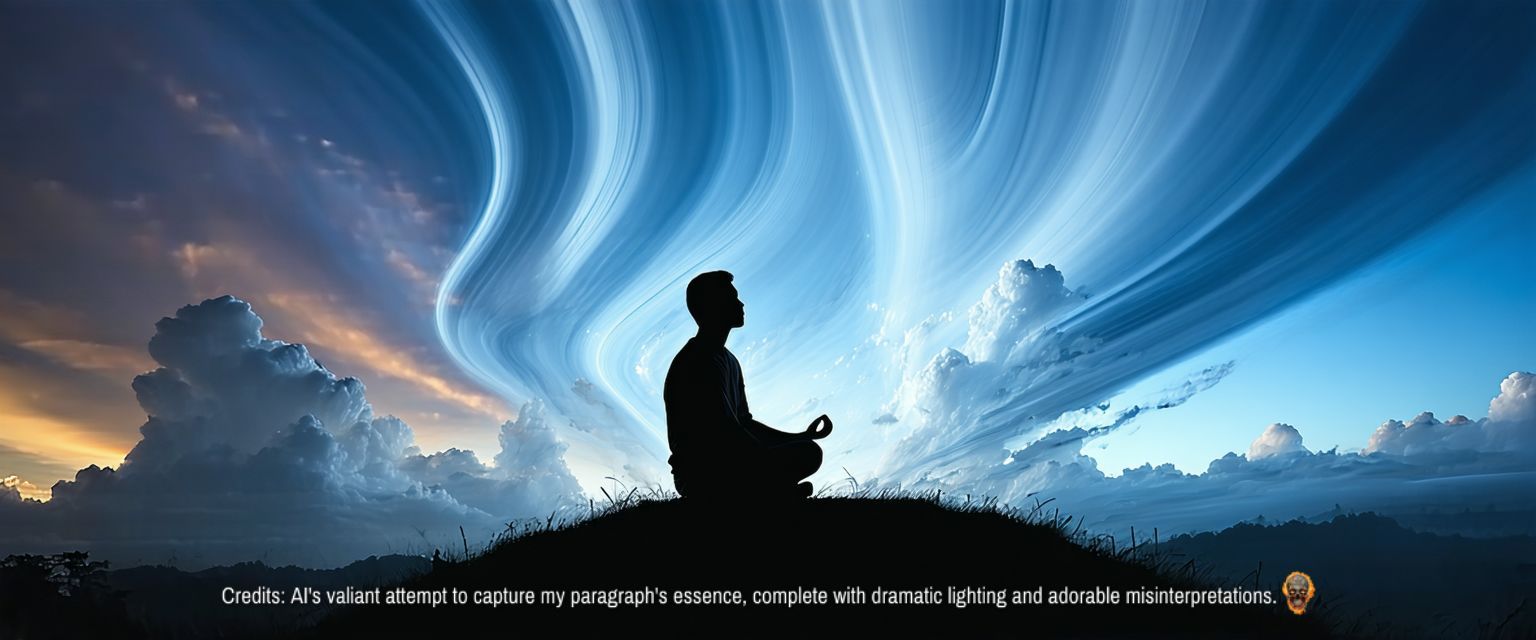The Free Will Illusion: Who’s Pulling the Strings When No One’s There?
You think you have a choice. You don’t.
The ancient debate between free will and determinism occupies philosophy classrooms and late-night dorm discussions, but it misses the point by miles. It’s like arguing about which direction a mirage is flowing.
Imagine two prisoners arguing about whether they can choose their meals while ignoring the fact that the prison doesn’t exist. That’s you, debating free will versus determinism while missing the elephant in the room – there’s no separate self to either have choices or be determined. The entire question rests on a phantom.
The debate assumes a “you” exists independent of the universe, some central command center making decisions. Science found no evidence of this command center, just neural networks firing in complex patterns. No homunculus sits at the controls.
Free will or determinism? The question collapses when you realize…
…the chooser is the illusion, not the choice.
The Ghost in the Machine
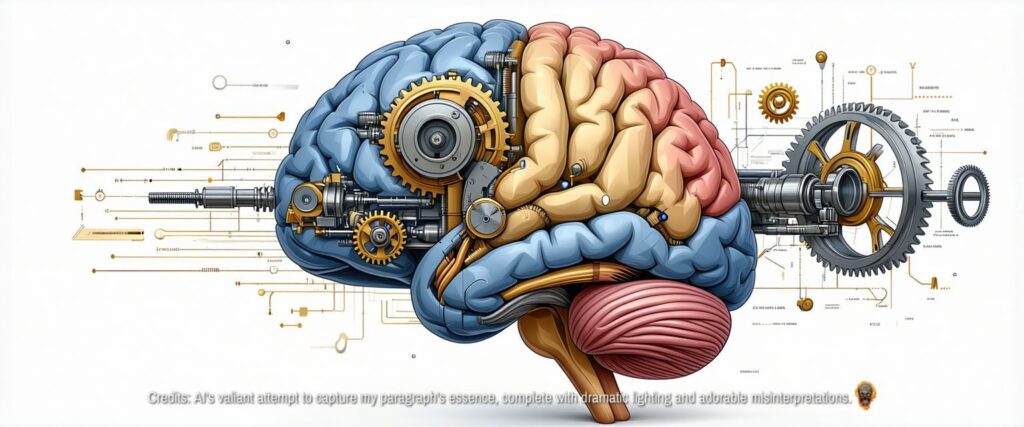
You can’t find what isn’t there. No matter how hard you look.
The separate self that supposedly makes choices is a narrative the brain constructs after the fact. It’s an evolutionary survival mechanism gone wild, claiming ownership of actions that happen through you, not by you. This distinction cuts through centuries of philosophical knots with one stroke.
Think of your last major life decision. Where did the impulse come from? Trace it backward. Genetics shaped your brain structure. Childhood formed your values. Random encounters created your preferences. Past experiences molded your fears. Where in this causal chain can you locate the mythical “free agent” making a choice independent of all these factors? It vanishes under investigation, like smoke when you try to grasp it.
Your brain creates thoughts the way your kidneys create urine – as a natural function, not a conscious choice. The sensation of deciding comes after your brain has begun the action. Neuroscience confirms what ancient wisdom traditions discovered millennia ago through direct observation.
This realization terrifies people because it threatens their core identity. If we don’t make choices, what are we? What happens to morality and meaning if the decider disappears?
Look for yourself and find nothing.
The Choice That Never Was
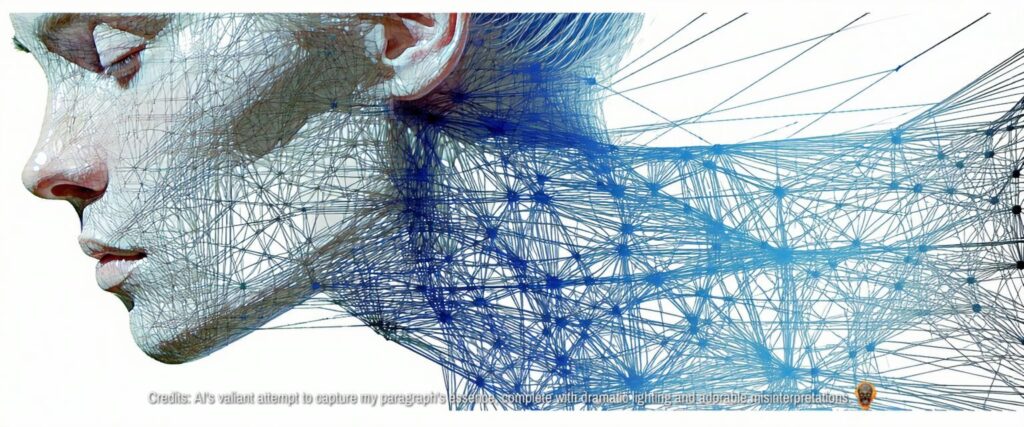
Every choice stems from something you never chose. Your first predicament.
The illusion of choice manifests when multiple possible actions appear before your awareness. What remains hidden is that your reaction – which option feels “better” – emerges from factors outside your control. Your preferences aren’t yours; they’re the product of conditioning that precedes your existence.
Take Mike, who “decides” to order chocolate ice cream instead of vanilla. He feels this choice defines him somehow – “I’m a chocolate guy.” But why does chocolate appeal more? Perhaps his mother rewarded him with chocolate as a child. Maybe a genetic predisposition makes his taste receptors respond more strongly to those flavor compounds. Or a movie he watched last week featured a character he identified with enjoying chocolate. He never chose to be influenced by these factors.
The brain generates justifications after the fact: “I chose chocolate because I like rich flavors.” This post-hoc explanation creates the comforting illusion of agency. The truth? The choice was made through you by the totality of conditions, not by some independent controller called “you.”
The entire mechanism operates without requiring a central agent. The system works fine without a ghost in the machine, yet we cling to the belief that we author our actions.
No puppeteer pulls your strings from within…
…the strings pull themselves.
Reality Without a Decider
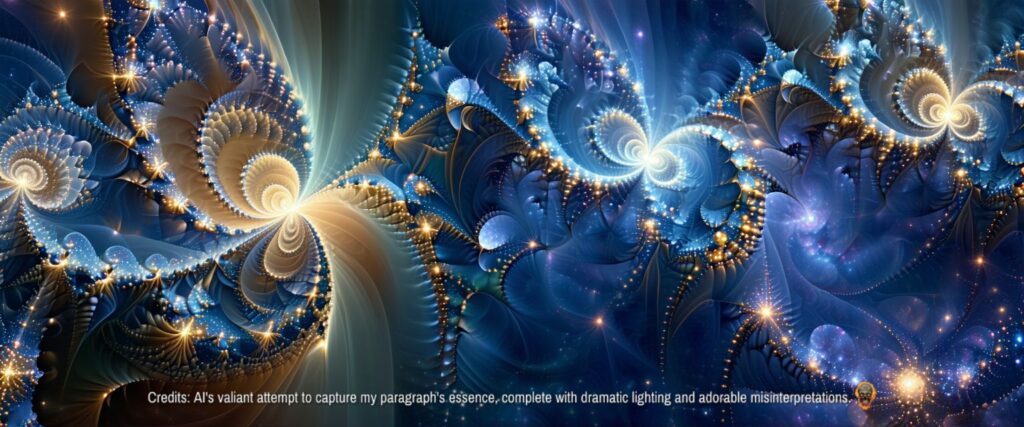
The universe unfolds in perfect precision. No manager required.
Neither free will nor determinism captures reality because both concepts emerge from the flawed premise of separation. When the self dissolves, causality appears as an unbroken wholeness rather than a sequence of separate events. The universe happens all at once, though we experience it sequentially.
Imagine watching waves on the ocean. You can point to individual crests and troughs, naming them separate waves, but the reality is one ocean in motion. Similarly, you can point to “decisions” and “choices,” naming them separate events, but reality is one undivided happening. The brain creates the illusion of fragmenting this wholeness into discrete chunks – events, choices, causes, effects.
What remains after seeing through the illusion isn’t a cold, mechanistic determinism. It’s an intimate immediacy with what is. The question shifts from “Do I have free will?” to “Who is this ‘I’ that would have it?” When the questioner vanishes, the question dissolves, revealing the answer that was always present.
Freedom exists, but not the kind most seek. True freedom isn’t having unlimited choices but transcending the very notion of being a chooser. It’s liberation from the burden of believing you control or should control what happens.
No sailor steers this ship…
…the ocean and vessel are one movement.
The Only Liberation That Matters
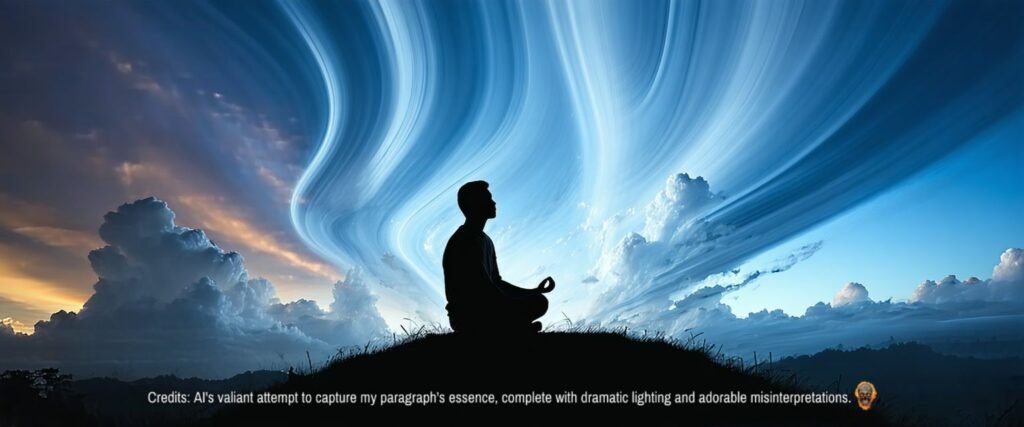
Stop fighting your own shadow. Look instead.
The desperate search for free will stems from our fear of meaninglessness, our terror of being cosmic puppets. We want to matter, to author our existence, to bear responsibility for our lives. This instinct runs deep, embedded in the very structure of ego-consciousness.
Try an experiment: for one hour, observe every thought and impulse without claiming ownership. Just watch them arise and fall like clouds in the sky of awareness. Notice how the “I” swoops in to claim authorship of thoughts it finds acceptable while distancing itself from others. “I decided to help that person” versus “Anger just came over me.” See the inconsistency? The self takes credit selectively.
The path beyond this confusion lies not in philosophical debate but in direct investigation. Look for the controller and find only processes. Look for the decider and find only conditioning playing out. The resolution isn’t intellectual but experiential, a recognition so obvious it’s overlooked.
What dies in this recognition isn’t your humanity but the burden of believing you stand apart from life, alternately controlling it or being controlled by it. What remains is life living itself, intelligence expressing without a controller.
There is no puppet to free…
…only this.


